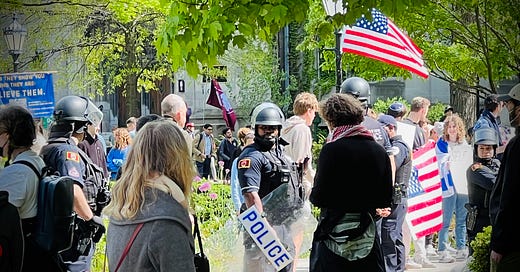LER No. 41 - 2nd Graders Sworn In as Jurors, Judges' Travel + Workplace Culture, More Bad Romance, When "Legal Fees" Aren't Legal Fees, Ethics History, Jobs, Events & More (05.06.24)
The Legal Ethics Roundup - your Monday morning tour of all things related to lawyer and judicial ethics with University of Houston law professor Renee Knake Jefferson
Welcome
Thank you for being here. Welcome to what captivates, haunts, inspires, and surprises me every week in the world of legal ethics.
Each week the Legal Ethics Roundup is viewed by more than 1,500 readers across the United States and in 32 different countries. Subscribers include judges, lawyers, professors, state bar administrators, students, government officials, and people who care about the future of our democracy.
If you haven’t subscribed, take a moment now to sign up at the link below. It’s free! And you’ll never miss the latest edition. Please also consider becoming a paid subscriber, which helps to support this weekly newsletter and unlocks special bonus content, along with the ability to post comments.
Hello from Chicago! The University of Chicago Class of 1999 celebrated our 25 year reunion over the weekend. Not sure how that is possible?!? But it was wonderful to catch up with classmates. I also spent time in the Hanna Holborn Gray Special Collections Research Center at t…



